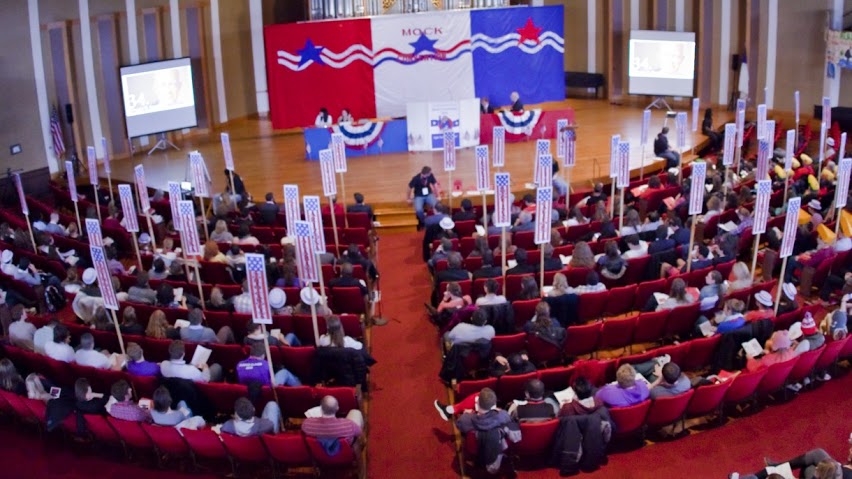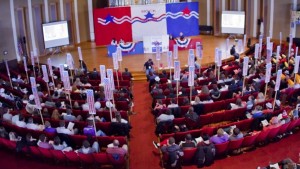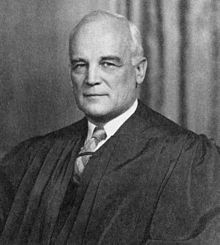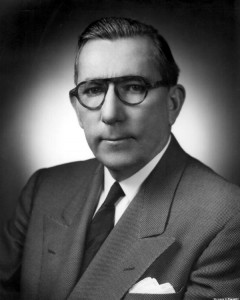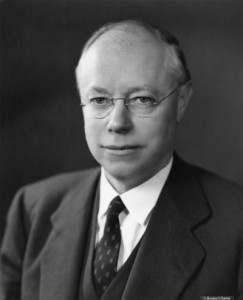
Areena Arora, Managing Editor
Democracy was debated by members of the Wesleyan Council of Student Affairs (WCSA) at its Jan. 25 meeting. How senators are appointed and who gets the right to vote was at issue.
A resolution to appoint new members was proposed through the Administrative Policy Committee, and was opposed by Senator Phub Dorji who questioned the process used to decide which candidates received voting rights.
WCSA President Jess Choate said there were five equally qualified applicants for two open positions and the executive committee made a decision after a long discussion.
“We appointed three students as members at large because we only had two vacant positions and we did not want to disregard the other three voices,” said Choate.
Dorji responded, “If all five candidates were equally qualified, wouldn’t it be better if full senate decided on who gets voting power and who gets to be a member at large?”
Dorji said, “The Executive has great powers, but their combined powers must always be smaller than that of the Legislative – if they appoint Senators like they did, then they can fill the Legislative with their friends who will vote along their lines.…If we want to call ourselves a democratic establishment, we need to start taking democracy seriously.”
Dorji also asked if it would’ve been better to have the applicants come to the meeting and talk to the full senate.
However, since all the applicants were not present at the time, Choate suggested it would be unfair to others and acknowledged Dorji’s concerns.
WCSA Vice President Sam Schurer said, “(The discussion) left me more excited than ever to move forward with improvements to WCSA’s internal workings that Jess (Choate) and I see as crucial to a successful term.”
Choate said, “At this point, we did what our current constitution requires us to do, but we will be working to create a more inclusive appointment process in the future.”
According to the WCSA constitution, “The Executive Committee shall appoint, with the consent of WCSA, at large representatives for the purpose of ensuring appropriate constituent balance on WCSA.”
However, according to WCSA’s Standing and Sessional Orders of the Council, adopted in April 2014, members at large do in fact occupy a voting seat. The Executive Committee may also appoint one member at large, with rights to attend its meetings but no voting rights.
Freshman Katie Kuckelheim, who was appointed as a member at large with no voting rights, said, “Being a member at large gives me a chance to learn what WCSA does….before I make my vote count. I feel it’s better that I do not have voting rights as of now so I can get to know WCSA better, and then I will be able to have a more informed choice.”
Kuckelheim added that when a spot for senator opens, she will be the first to apply.
Senator Ryan Bishop, while agreeing with Dorji’s concerns, expressed satisfaction with Choate and Schurer’s approach to the situation.
Bishop said, “Sam (Schurer) clarified that this is coming out of the constitution and they (Choate and Schurer) agreed that in future we should try restructuring the election processes, but it really made a great impression on me that [Schurer] took out the time to explain exec’s (Executive Committee) position.”
Choate said, “We contacted Senator Dorji and other senators who were raising concerns and are hoping to continue the conversation with them. Our Administrative Policy Committee has already begun to incorporate the concerns raised in Monday’s full senate into their ongoing efforts to improve our organization.”
Schurer said, “Those are the kinds of conversations that Jess (Choate) and I have been trying to get started since we decided to run. It is awesome to see someone with so much passion for WCSA and we think it is a really good sign.
Full senate also voted to appoint senator senior Andrew Stock the sergeant of arms and voted to adopt a resolution to change the names of the Residential Affairs Committee to Student Life Committee and the Campus Relations Committee to Public Relations Committee.
Two budget requests also were passed at the meeting.













